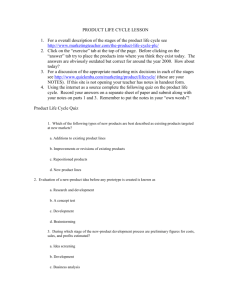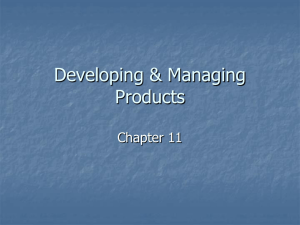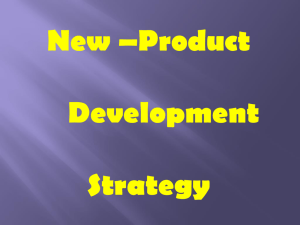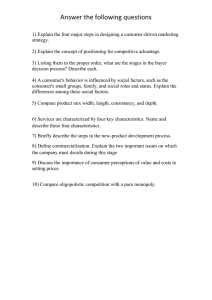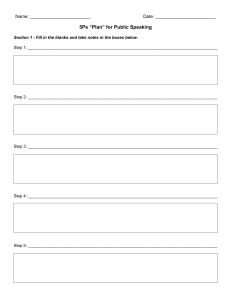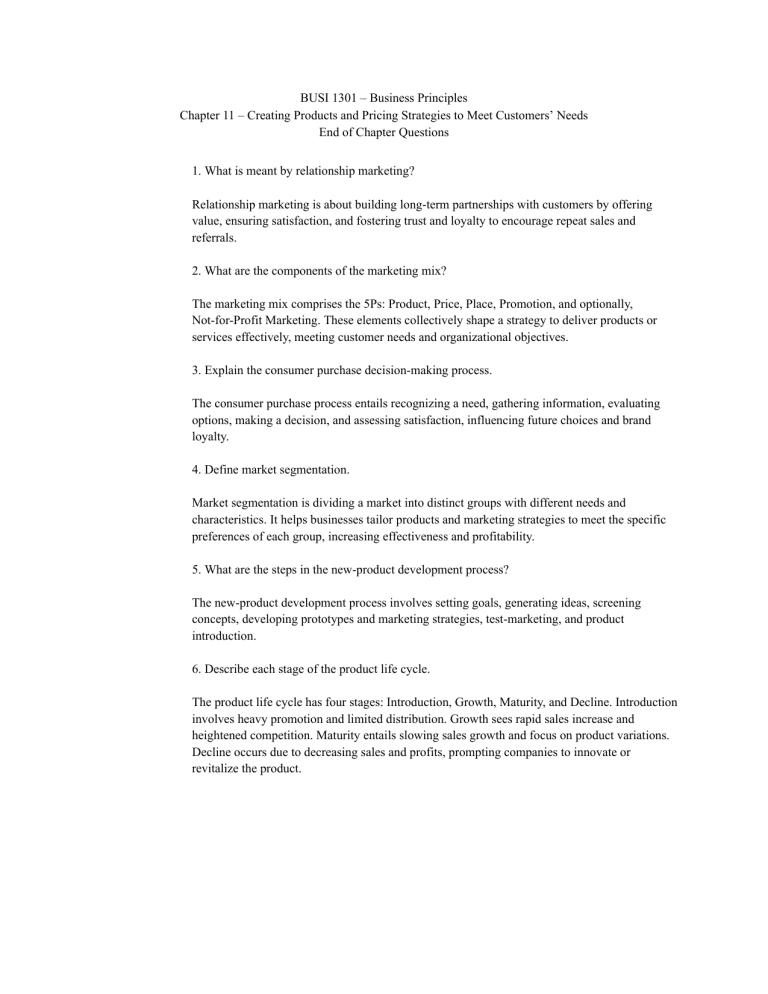
BUSI 1301 – Business Principles Chapter 11 – Creating Products and Pricing Strategies to Meet Customers’ Needs End of Chapter Questions 1. What is meant by relationship marketing? Relationship marketing is about building long-term partnerships with customers by offering value, ensuring satisfaction, and fostering trust and loyalty to encourage repeat sales and referrals. 2. What are the components of the marketing mix? The marketing mix comprises the 5Ps: Product, Price, Place, Promotion, and optionally, Not-for-Profit Marketing. These elements collectively shape a strategy to deliver products or services effectively, meeting customer needs and organizational objectives. 3. Explain the consumer purchase decision-making process. The consumer purchase process entails recognizing a need, gathering information, evaluating options, making a decision, and assessing satisfaction, influencing future choices and brand loyalty. 4. Define market segmentation. Market segmentation is dividing a market into distinct groups with different needs and characteristics. It helps businesses tailor products and marketing strategies to meet the specific preferences of each group, increasing effectiveness and profitability. 5. What are the steps in the new-product development process? The new-product development process involves setting goals, generating ideas, screening concepts, developing prototypes and marketing strategies, test-marketing, and product introduction. 6. Describe each stage of the product life cycle. The product life cycle has four stages: Introduction, Growth, Maturity, and Decline. Introduction involves heavy promotion and limited distribution. Growth sees rapid sales increase and heightened competition. Maturity entails slowing sales growth and focus on product variations. Decline occurs due to decreasing sales and profits, prompting companies to innovate or revitalize the product.
